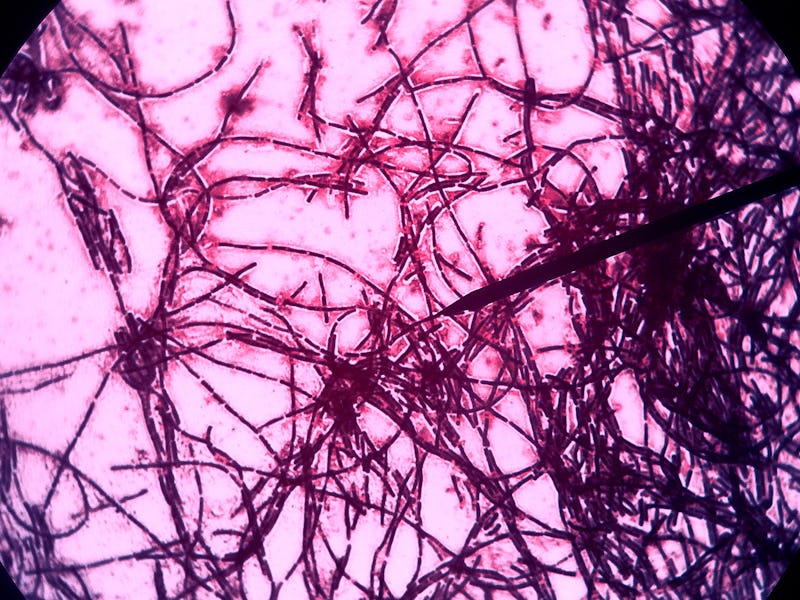Some Viruses Can "Talk" to Each Other
They're plotting against you.

If you ever got sick and thought viruses were plotting against you, they probably are: Scientists think some viruses can “talk” to each other.
In a study published in Nature Wednesday, researchers found that viruses that attack the Bacillus subtilis bacteria communicate with each other to decide whether to infect the host or kill it. This is the first time researchers have ever discovered any type of viral communication system and could lead the way to antiviral drugs.
“We found this phenomenon in viruses that infect bacteria,” Rotem Sorek, professor at the Weizmann Institute of Science, told Inverse. “We don’t know yet if viruses that infect humans also behave this way. If they do, then the communication molecules they might use can form great antiviral drugs — because they will force the virus to go dormant instead of killing our cells.”
Viruses, it turns out, use a small-molecule communication system, where they “talk” using amino acids, the building blocks of protein. Researchers tracked this system down by studying the Bacillus bacteria; when a virus infects Bacillus, it can lead to gastrointestinal infections. When a virus or group of viruses infect the Bacillus host cell, they release these amino acids as messages and ask each other whether or not they should infect or kill the bacteria.
The way these viruses “talk” is sensing how concentrated these amino acids are. If the concentration is high, the viruses get the go-ahead to infect the Bacillus cell. Otherwise the viruses will make copies of themselves and kill it. In other words, they’re making some evil plans akin to Attack of the Clones. What’s more, each type of virus encodes a different version of the communication peptide, similar to speaking different languages.
Researchers already knew Bacillus — the virus’s host — communicated with each other by releasing and sensing chemicals, a phenomenon known as quorum sensing. Bacillus might use this “talking” method to decide whether to divide or launch an infection. (They can also turn waste into fuel and possibly grow food on Mars.) While researchers were studying Bacillus, they stumbled onto the fact that the Bacillus bacteria’s viral invaders were also communicating.
It’s possible that viruses that are responsible for human diseases can also communicate with each other in similar ways. If that’s the case and scientists crack the viral code, we might be one step closer to preventing diseases caused by viruses.
“This is going to be one of those transformative papers,” University of Leicester microbiologist Martha Clokie told Nature.